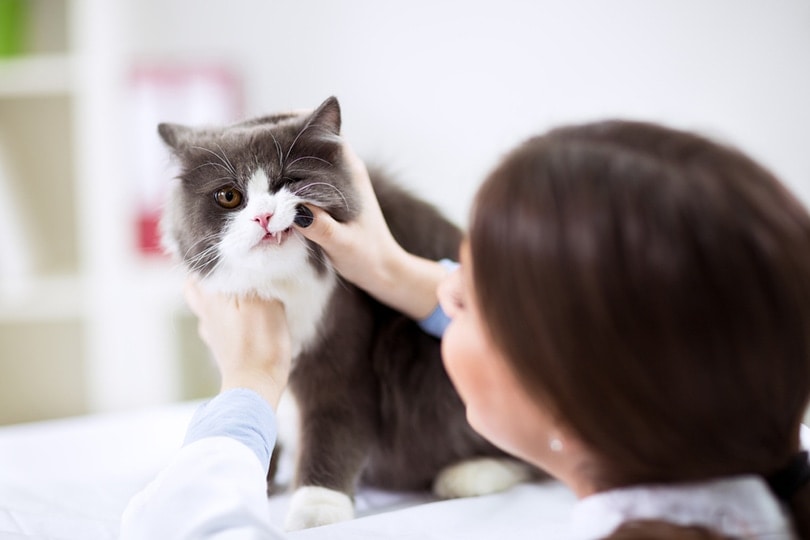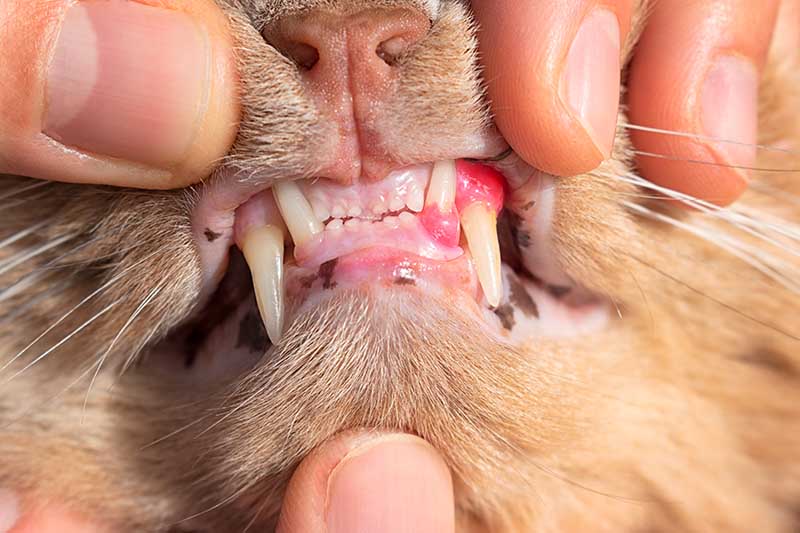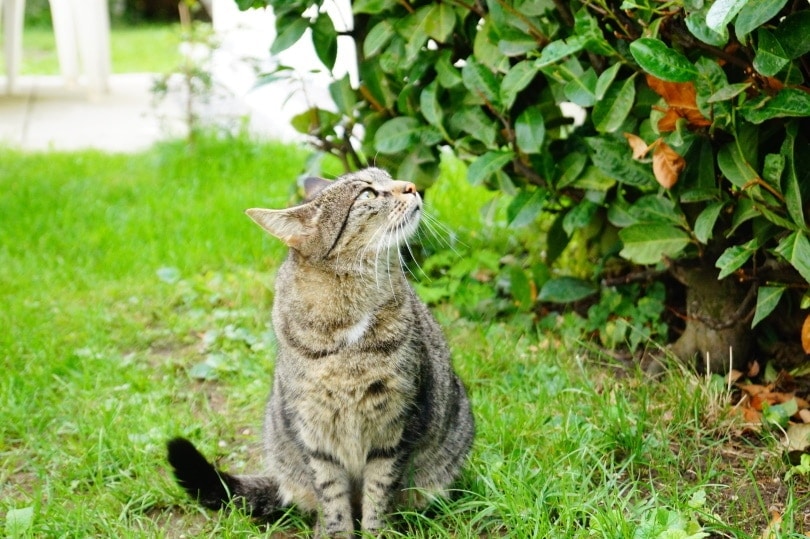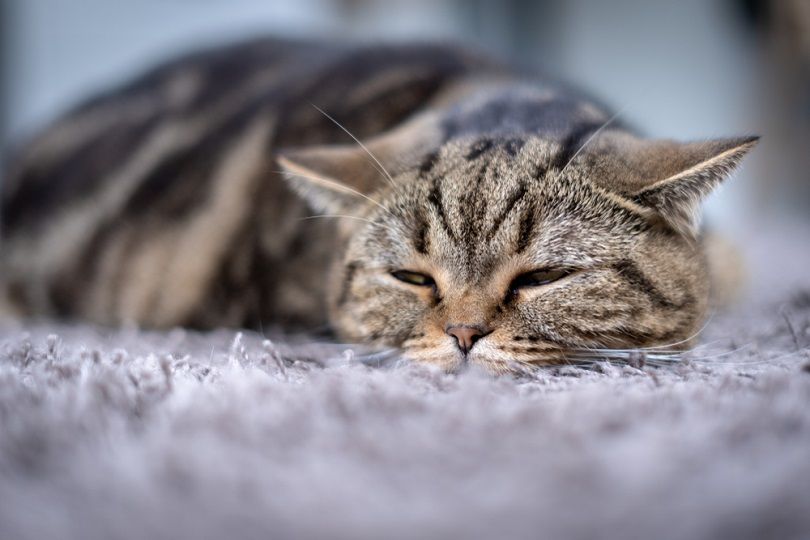Can Cats Die From Tooth Resorption? (Vet Reviewed Facts & FAQ)
Updated on

Tooth resorption in cats is more common than most feline owners realize, with as many as 75% of cats over 5 years of age and 60% of all cats suffering from the condition.1 The good news is that this condition is not known as an automatic “killer,” so, no, a cat can not die from tooth resorption directly. The bad news is that it can be extremely painful, and treatment is not always provided in a timely manner.
Without treatment, tooth resorption may result in problems like tooth loss and bacterial infections that could eventually move to the bloodstream. But as long as the condition is caught and treatment is started (even if late), a cat can go on to lead a long and happy life. Here are a few important things that you should know about tooth resorption in cats.
What Is Tooth Resorption?
Tooth resorption is a condition in which a cat’s body breaks down infected or rotten teeth and then absorbs the tooth and root material. There are two types of tooth resorption:2 type 1 and type 2. Tooth resorption and cavities might look similar on the surface, but cavities are caused by acidic bacteria eating at the tooth materials rather than the body’s enzymes absorbing them.

What Causes Tooth Resorption in Cats?
This condition has been documented for decades, but researchers have not been able to determine what causes feline tooth resorption. Several studies and tests have been done, and a few theories have been put forth. But to date, no specific conclusions or evidence has been established to pinpoint the cause of this condition. What has been established is that the older a cat gets, the higher risk they have of suffering from tooth resorption. However, cats of any age can develop this problem, so it’s important to see a vet as soon as signs of tooth resorption appear, no matter how healthy or young your kitty is.
What Are the Signs of Tooth Resorption in Cats?
While there is no clear cause of tooth resorption in cats, a few clear signs are associated with the condition that you should watch for. Know that tooth resorption can be extremely painful, and cats naturally work hard to hide any pain that they have so as not to appear weak to possible predators. So, you may not notice that your kitty is in pain just by looking at them. However, you may be able to identify that tooth resorption is taking place based on the following signs:
- Difficulty Eating — Your kitty might turn their head to try to keep food in their mouth while they eat or drop pieces of food when chewing. They might take longer to eat their food than they used to.
- Increased Isolation — If your cat is in a great deal of pain, they may hide away in a bedroom or a corner, away from family members in the household. They might also be resistant to cuddles and attention.
- Oral Problems — While your cat might not allow you to look at their teeth and gums, they could display oral problems like drooling and bleeding that can be seen without looking inside their mouth.
Is There a Way to Effectively Treat Tooth Resorption in Cats?
Sometimes, a veterinarian can detect tooth resorption by sight if the problem has advanced enough. If signs are present but a diagnosis cannot be achieved by sight, a dental radiograph and/or X-rays may be necessary to identify inflammation and other markers of tooth resorption. Treatment typically involves the extraction of affected teeth and regular deep cleanings thereafter.
 In Conclusion
In Conclusion
Tooth resorption is a painful problem that can lower your cat’s overall quality of life if not diagnosed and treated. Your vet should look for signs of tooth resorption anytime you take your kitty in for a checkup, so there is no need to worry about the development of this problem unless obvious signs are displayed.
See also:
- My Cat Lost a Tooth — Is It Normal and What Do I Do?
- Tooth Resorption in Cats: Causes, Symptoms & Treatment
Featured Image Credit: didesign021, Shutterstock












